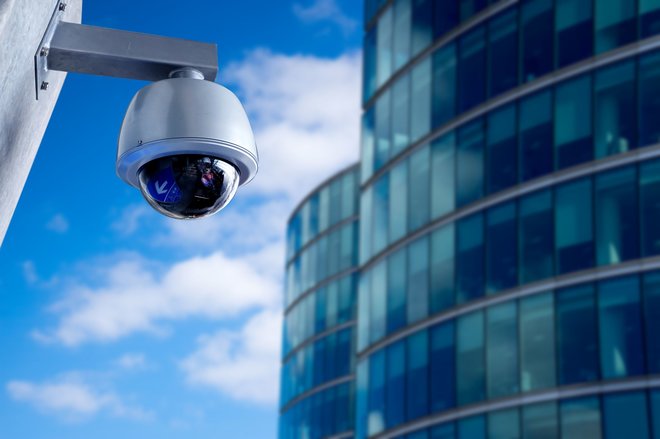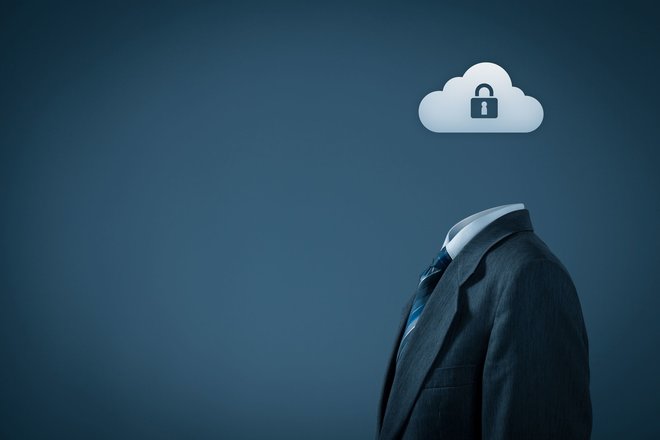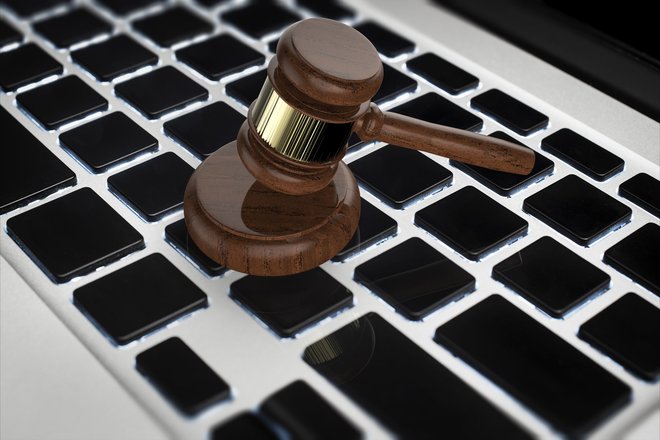Just when you think you've seen everything - along comes Microsoft and amazes us. By now, it's common knowledge that Windows 10 likes to "phone home", but it's still worth taking a closer look at just how much (or how little) Redmond values data security. Think of it this way, if data security was a limbo pole, Microsoft has just made sure you'll bump your head. We've just gotten new details on how much data is sent by Windows 10 along with the conclusion that we've gone back in time to the year 2008.

Recently, the Internet Security Days event was held, a meeting where experts discuss the topic of data security. Unlike in the world of Apple, where missing ports are lauded by the media as true innovation, this event is covered by the special press only and hesitantly. You won't find any CEOs of multi-billion dollar companies but "only" experts there - which makes it harder to fit their news into the mainstream format. Shame, since they touch on issues that affect the (data) security and privacy of each and all of us.
Two repeating issues that still concern us in the year 2016 are: How much data is collected and how carelessly does it get send out? We all know Microsoft's mantra that data is only collected to improve the "user experience" - and to display a couple of ads. This might seem halfway plausible for some telemetry data (system usage and diagnosis) and Cortana only becomes useful once she has access to your personal data, if you intend to use her at all. But why does Microsoft need my WLAN key? In case one of their employees happens to stand below my balcony and needs to get online? Why do they have to know about the applications that are installed on each machine even if they never caused any errors that would require Microsoft to take action? If you're using a delicate file sharing program - they will immediately get wind of that.

Another mystery is why Office, beginning with Office 2013, sends entire document paths plus format type, title and author to their servers. That's news to me! When I save a document locally I expect it to stay there and not make its way into the cloud, this includes the title! Your Microsoft Edge web browsing history, it won't get any more private than that, also gets sent. And if you happen to use "Microsoft Hello", the feature that uses biometric data such as fingerprints or face recognition to log you in, that data is also sent to their servers. Naturally, we're assured that everything stays anonymous even though we're not given any details as to how they manage that. How long your data is saved is another company secret.
Until now, you basically had to trust in Microsoft's reticence but that's not the only risk any more. Windows 10 not only sends out a lot of data but it does so through insecure channels. The encryption mechanism employed is sub-standard because it doesn't detect forged certificates. Experts have already successfully launched man-in-the-middle attacks to intercept the data streams. But that's not all: Not only can they "listen in" but they can also manipulate the data. This means third parties could alter what you send into the cloud so that you'll receive the modified files the next time your PC syncs up. There are better alternative but Microsoft doesn't use them.

All this reckless data hogging has also lead to further investigation by several countries to determine whether Windows 10 is safe and legal to use in businesses and government facilities. Particularly EU countries that have strict regulations against spying on employees may find that Microsoft is in violation of their privacy laws. This poses an interesting question: Why are private consumers less protected than working people?
Participants of the Internet Security Days eventually arrived at the conclusion that Windows 10 employs data and security standards from before 2008. That's what you get for using insecure channels to send files into the cloud. Microsoft will have to answer the question of how much data is really required to provide a functioning, efficient system. If even government institutions, not exactly known for rapid response times, are starting to feel alarmed, things have definitely gone too far. Microsoft should acknowledge that - and act.




I have used Windows XP Pro SP3 for the last 8 1/2 years. When Microsoft cut off support 2 1/2 years ago I was not going to be bullied into changing operating systems or computers. My computers can run Windows 7 but I chose not to install it. For months Microsoft tried to trick Windows XP users into "upgrading" to a "more secure" operating system. We also saw their deceitfiul under-handed tactics with their so-called "free upgrade" to Windows 10. Call me what you want but I am not moving off of Windows XP and I certainly will not trust Microsoft to deliver a "more secure" operating system!
I am well aware of the so-called "security risks" and I use due diligence with having proper security software installed (and keeping it updated) and also staying away from Internet Explorer. I do find it interesting that Microsoft has said that Windows XP users will no longer receive updates to Microsoft Security Essentials and yet I receive updates for it every day. Malwarebytes Anti-Malware Premium still supports Windows XP (and I purchased lifetime licenses before they went to a subscription model). Sandboxie still supports Windows XP and so does Firefox. I have a NAT firewall in my router and a strong password for my wi-fi (as well as in my router),
The one thing that I do not do is use online backup or storage systems. Why backup to somebody else's hard drive? Why store things in the "cloud" where thieves can break in and destroy? Why take unnecessary risks with your personal data? External hard drives are cheaper and faster to use. I bought a new 6TB WD My Book online (ebay) for $100. It works great! To me online backup and storage is for fools.
Can I go back to my previous OS? If so, will there be any trace of 10? Like maybe down under the 100th sub directory...
I'm slowly but surely considering changing my operating system. Luckily my Surface 3 pro couldn't get W10 pro working properly so I reverted to W8.1 pro.
My partner successfully updated her old Dell to W10 so I know what I'm NOT missing ie hours of updating only to have to abandon it as it turns out to be another lemon.
Two days ago I read that M$ is trying to get everybody using their own pathetic AV system sometimes deleting other AV systems without asking. When will those arrogant people realise that it's all going to end in tears?
I always say " If it aint broken don't fix it "
So, what do we do about stopping our windows 10 PCs sending everything to Microsoft. Can we cancel a setting to block this action.
You may be able to disable some of these mechanisms in Windows 10 but not all of them. See this article for further details: http://www.pcworld.com/article/2971725/windows/how-to-reclaim-your-privacy-in-windows-10-piece-by-piece.html . We also have a small (free) program that can help you. . https://www.ashampoo.com/en/usd/pin/1004/security-software/antispy-for-windows-10
A very interesting blog, I have a B T business account with office 365 with out look mail, they have recently stopped me sending
emails, I can still receive mail so that's one bit of good news.
This is all down to the fact that I am still running windows XP,
B T say that i must up grade my operating system to be able to resume sending mail from out look, funny as I have colleges who run a photo processing lab in Plymouth Devon and they still have a computer with windows millennium on it and they can still use it to send and receive email, I have set up a google mail account which has over come my problem, B T are Hand in glove with Microsoft Oh well hope I don't get totally cut off for writhing this.
So, can someone tell me, if I am using say office 2006 or open Office, do our dear little friends get the info also?
Certainly MS are going the right way to not gain friends. I installed 10 on one of my machines and for the first year it gave me blue screens frequently. Being a bit of a geek I could sort it. Now I have not had a problem for weeks touch wood, BUT currently 10 is only suitable if you have 2 machines, one running something else, and you are a bit geeky. Certainly do not buy a new machine with it installed, build one yourself and then install it.
According to my sources, only Office 2013 and higher is affected by this.
I'm not a computer nerd, in fact I would really rate myself as below a beginner in computers.
I have recently replaced my computer system from XP to Windows 10 as there is no longer any support for XP. Why; I believe Bill Gates once made a comment about cars which was immediately picked up by one of the major manufacturers in America. They really shot Bill Gates down in flames.
I can buy an eight year old car and 10/15 years later still get hold of spare parts when needed, yet with a computer all I get told is there is no longer any support for that system! I think that I am being taken for a ride as I know that if in 4/5 years I have a fault which needs repairing I will take my PC to my local repair shop only to be told that "That system is no longer supported, you will need to get Windows 27" or whatever the new system is. This will of course mean a completely new computer with a case and all the bells and whistles that go inside it. My old PC, sling it on the scrap heap it's no good. When is someone going to wake up and smell the coffee, just because Microsoft have brought out a new Operating system doesn't mean that the old one no longer works. Surely programmes for the old system can still be made alongside the new one. Or doesn't it work like that for the consumer.